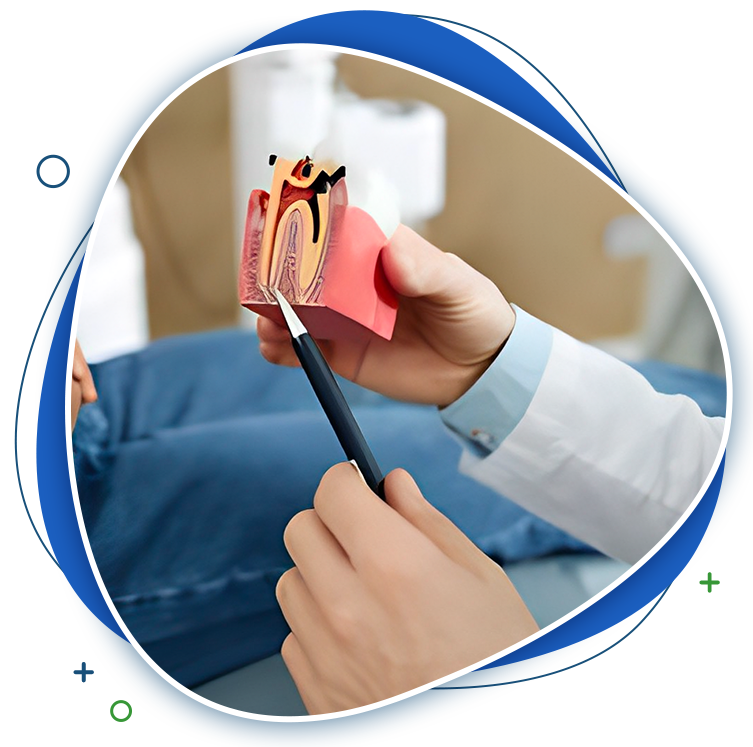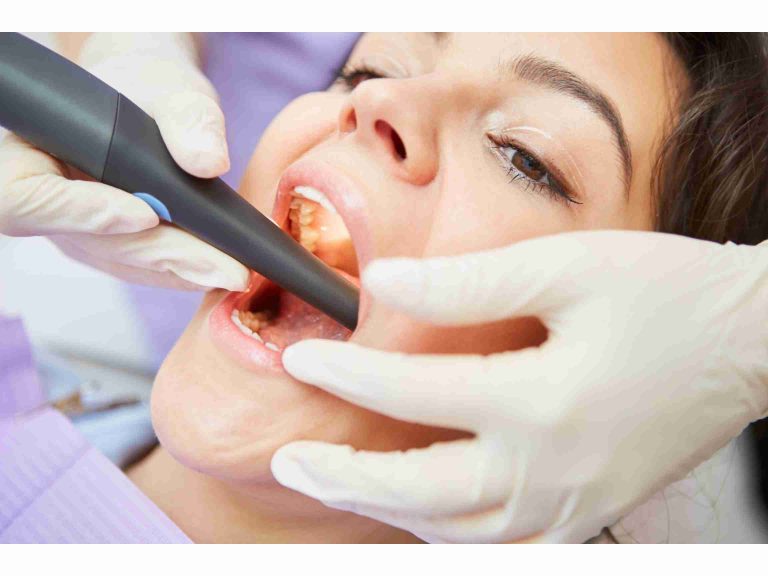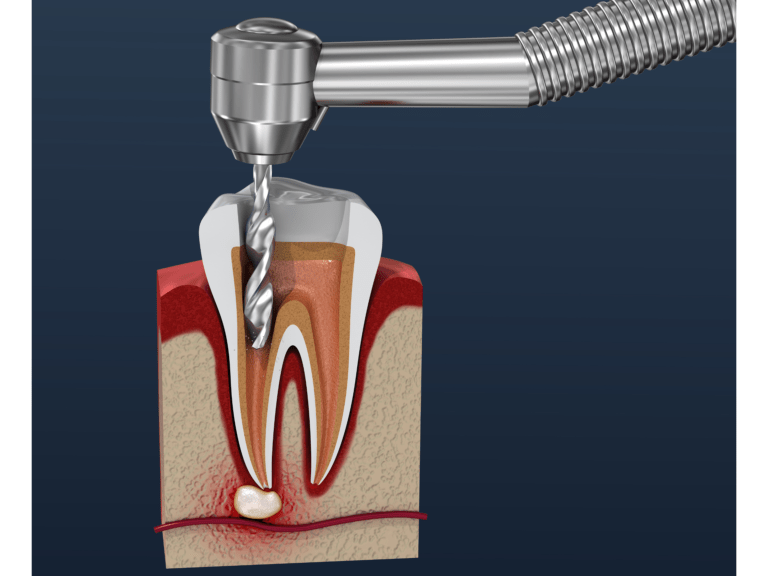Is It Time for a Root Canal? Let’s Find Out
Root Canal
A root canal treatment at our clinic near Wilberforce is used to repair and save teeth that have had their pulp exposed because of infection or trauma. Root canal treatment first involves extracting the infected nerve and pulp, then cleaning and sealing the root. A crown later supports the tooth.
At Good Smile, we exclusively treat our patients with the most recent technology to properly clean and prepare all tooth canals before filling them.
-
Are You in Need of a Root Canal Treatment?
There are a number of symptoms that could indicate the need for a root canal. If you’re unsure, here are a few signs to help you know when it’s time to consult your dentist: - You have developed extreme sensitivity to hot or cold foods and beverages
- There is sensitivity in your gums when you chew
- There is discolouration in your tooth following a trauma or an accident
- Your jaw and gums are noticeably swollen
- You feel constant, excruciating pain
- There is an abscess formed at the root


Good Smile Dental (Windsor) root canal treatment follows best practice procedures.
On the day of the treatment, you will be providing local anesthesia to numb the infected tooth and surrounding gums. If you nervous at Good Smile Dental (Windsor) can offer you sedation to relax you (Nitrous oxide, oral sedatives, and intravenous (IV) sedation).
To start the treatment the pulp is accessed through a small tooth crown opening.
The pulp and root canals are cleaned, disinfected, and shaped after removing the pulp.
We will fill the empty canals with gutta-percha, a flexible, rubbery dental material.
Our dentist will fill the tooth with a dental filling to prevent bacteria from re-entering.
The final step is the placement of a dental crown. The dental crown will protect the treated tooth and restore your bite. Crowns are made to order and typically take two to three weeks to complete. While your crown is being made, the temporary crown is removed, and our dentist will place your permanent crown on the tooth that has had the root canal treatment.
At Good Smile, we believe in making our treatments and services seamless and comfortable for you throughout. Our team is with you every step of the way, from your first consultation to your journey into recovery. And treatment with us is made easier by our flexible payment options.
Something we offer that no other dental clinic does in Windsor is accepting hospital vouchers for your treatment! What’s more? We’re a multilingual team carrying out consultations and procedures, making you feel right at home throughout your treatment.
You can come in for a consultation with us to discuss your options or to know more about our payment plans before you decide on getting your treatment. We’ll be sure to offer you the best guidance so that you can decide what’s best for you, depending on your needs, your budget, and your peace of mind.

If you’d like to have a conversation about your dental health and goals, don’t hesitate to give us a call on (02) 9037-3736. We’d be happy to serve and help you bring your oral health back to its prime.
Areas we serve: McGraths Hill, Glossodia, Mulgrave, Box Hill, Riverstone, Bligh Park, Richmond, Wilberforce & Pitt Town
Root Canal
A root canal treatment is used to repair and save teeth that have had their pulp exposed because of infection or trauma. Root canal treatment first involves extracting the infected nerve and pulp, then cleaning and sealing the root. A crown later supports the tooth.
At Good Smile, we exclusively treat our patients with the most recent technology to properly clean and prepare all canals before filling them.
The procedure of root canal:
- General Anesthesia: To begin, we will give you local anesthesia to numb the infected tooth and surrounding gums (Nitrous oxide, oral sedatives, and intravenous (IV) sedation are also used in dentistry to help you relax).
- Implantation of a dental dam: Your doctor will put a small rubber dam over the area before beginning root canal treatment. During the procedure, this isolates the tooth and keeps it dry.
- A hole for access: The pulp is accessed through a small tooth crown opening.
- Removal of the pulp: The nerves, blood vessels, and tissues inside the tooth are removed.
- Using tiny dental instruments.
- Canal sculpting: The pulp chamber and root canals are cleaned, disinfected, and shaped.
- After removing the pulp.
- Filling the canals: We will fill the empty canals with gutta-percha, a flexible, rubbery.
- Dental material.
- The tooth is sealed: Your doctor will fill the tooth with a dental filling to prevent.
- Bacteria from re-entering.
- Putting the finishing touches on the restoration: A dental crown will be required to protect the treated tooth and restore your bite. Crowns are made to order and typically take two to three weeks to complete. When your crown is finished, the temporary crown is removed, and your doctor will install a permanent crown.



